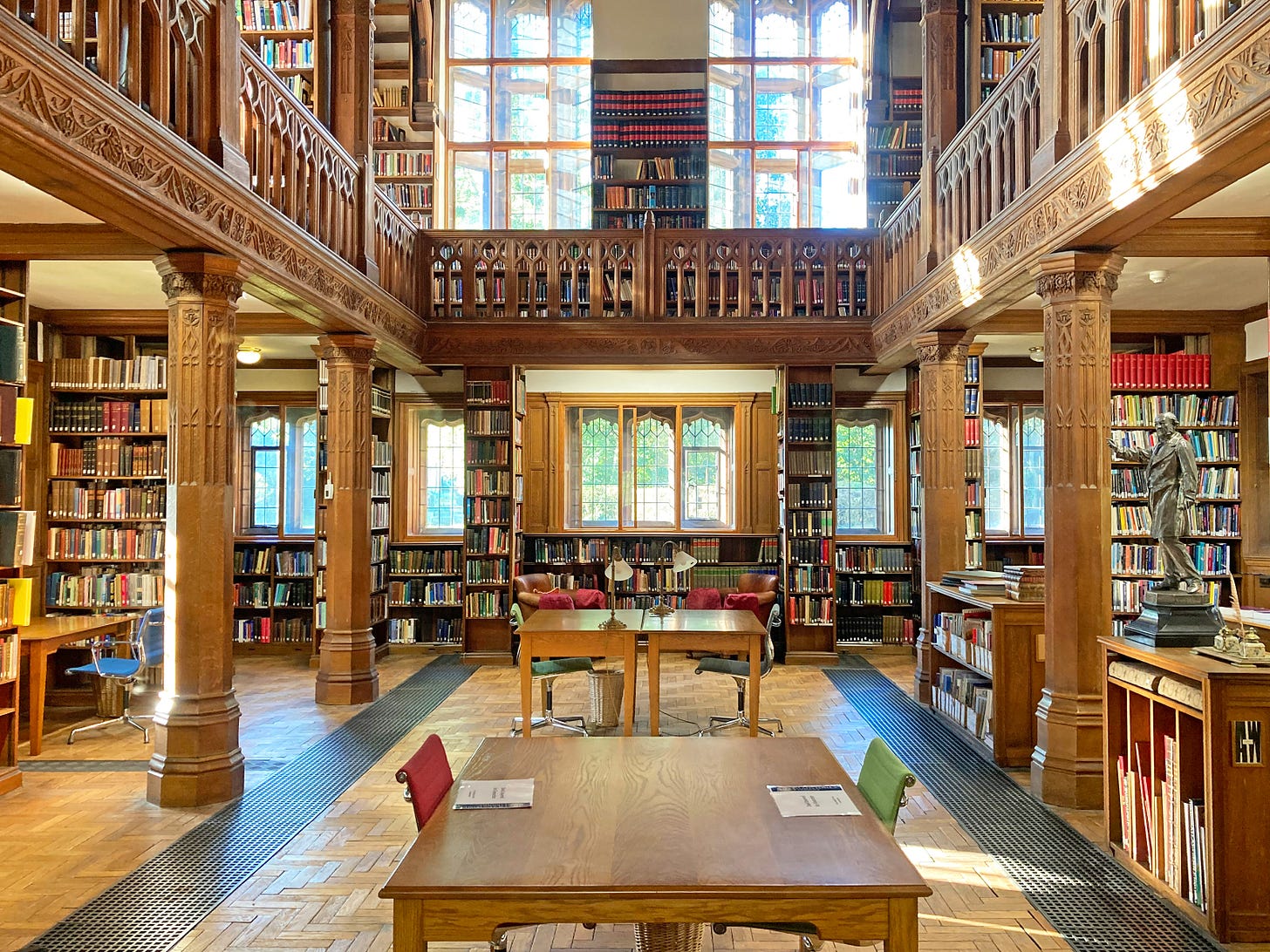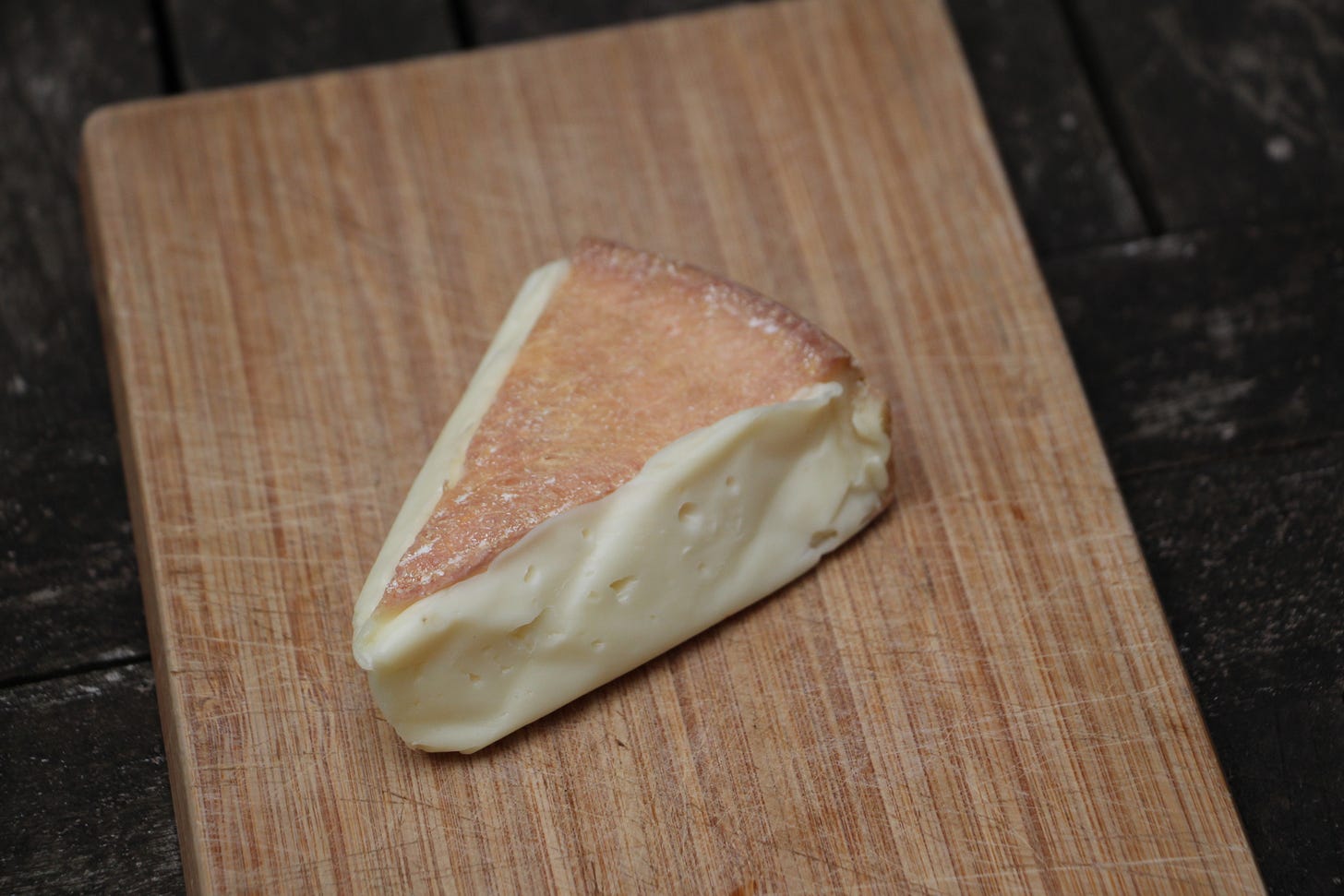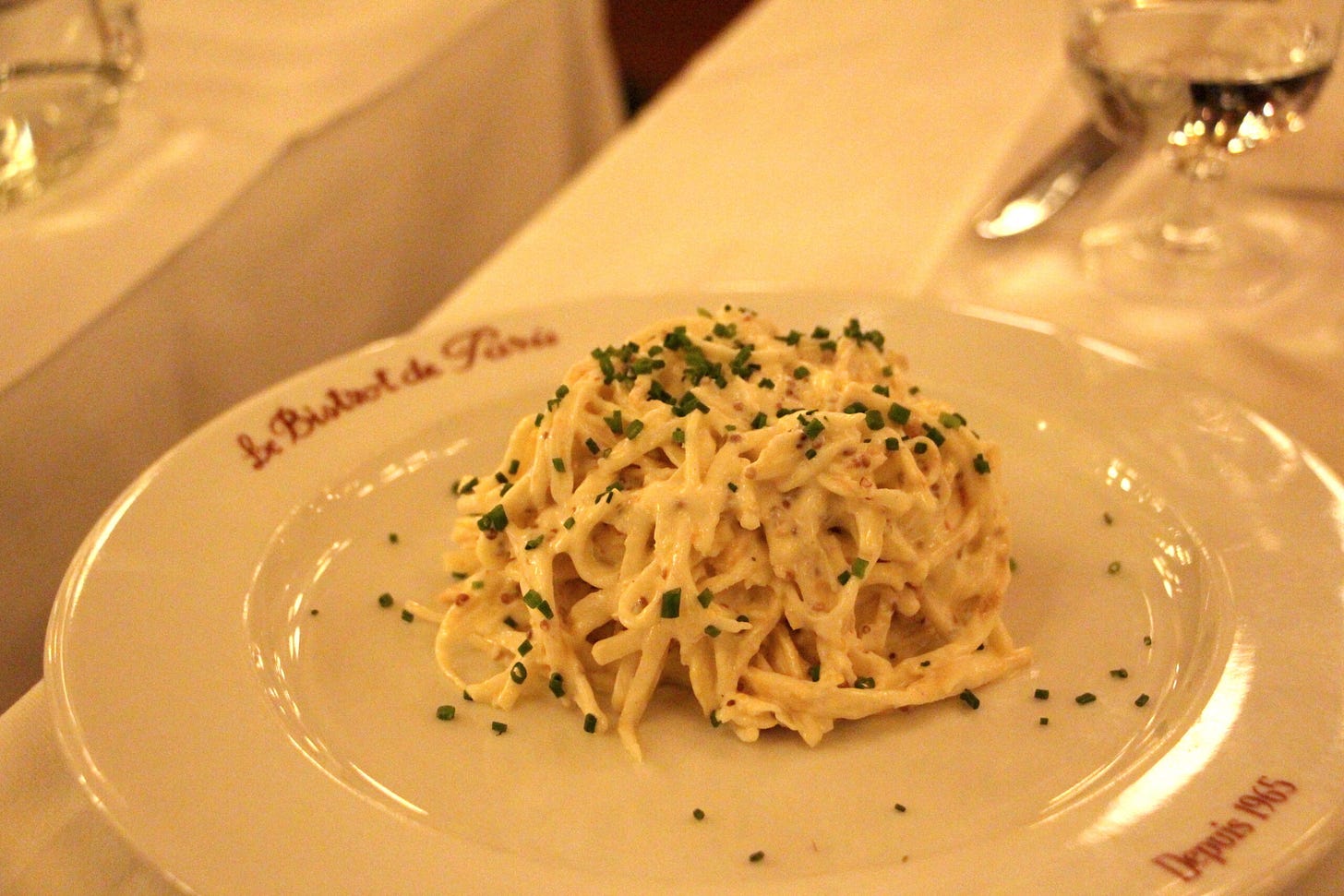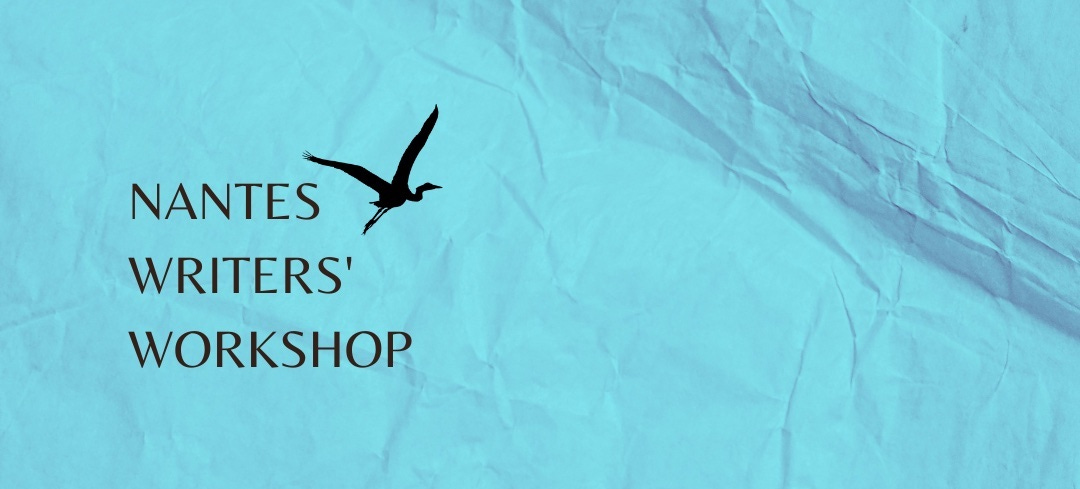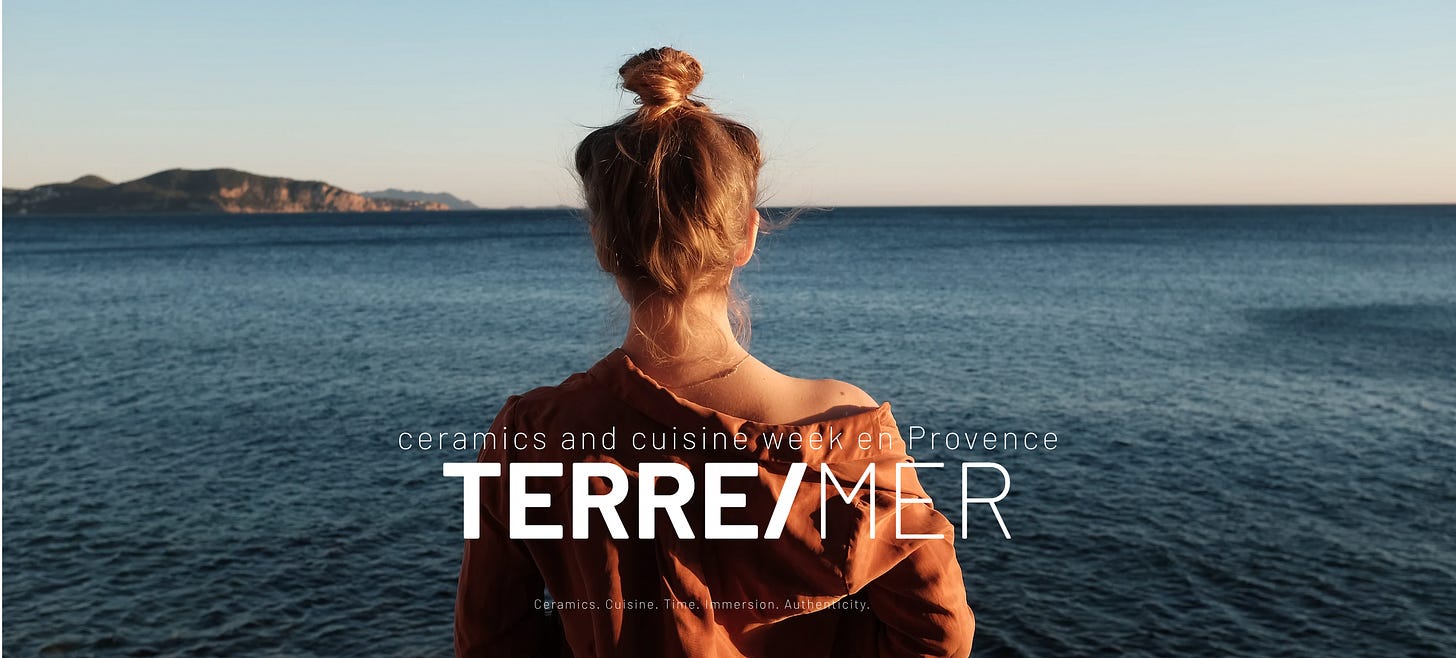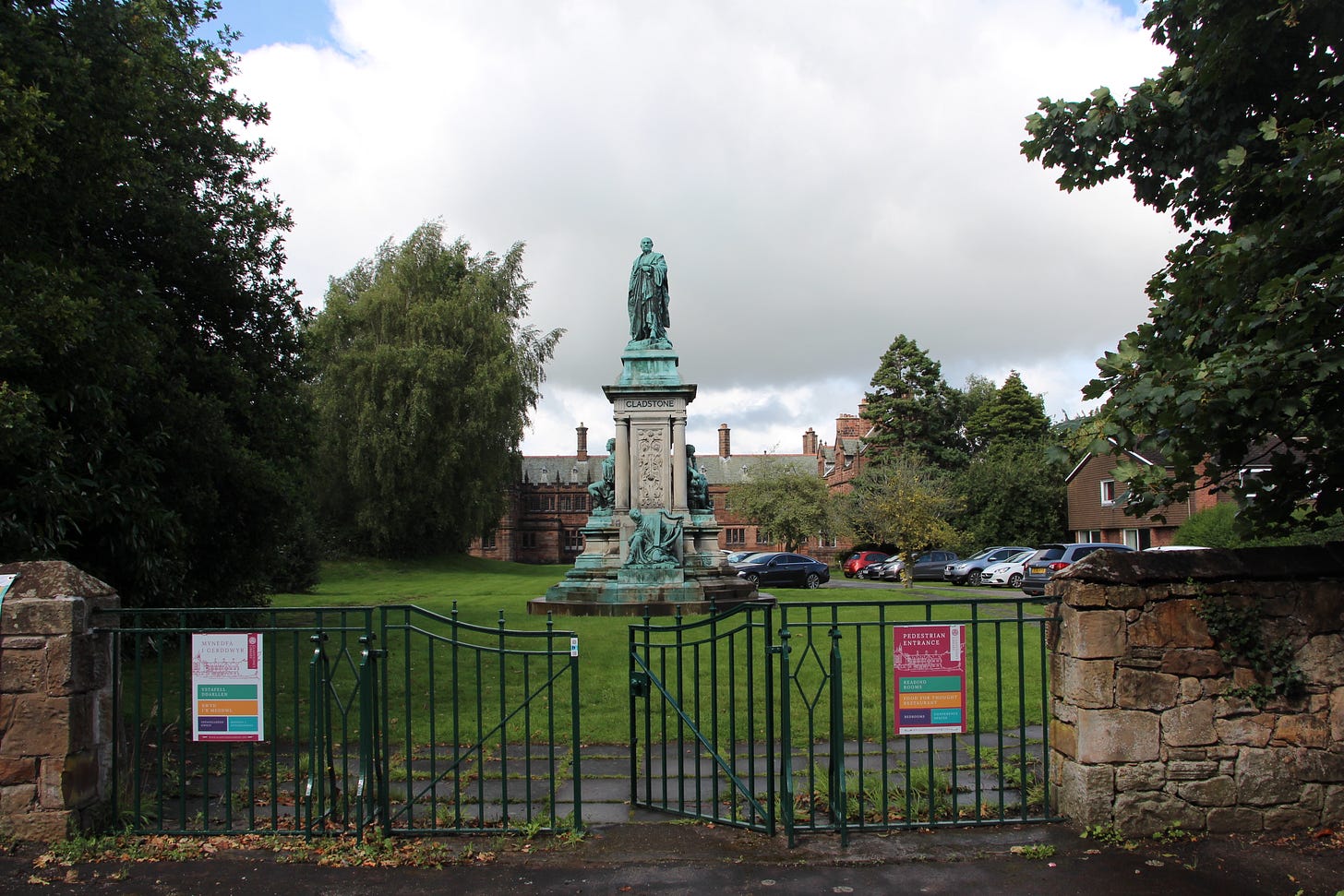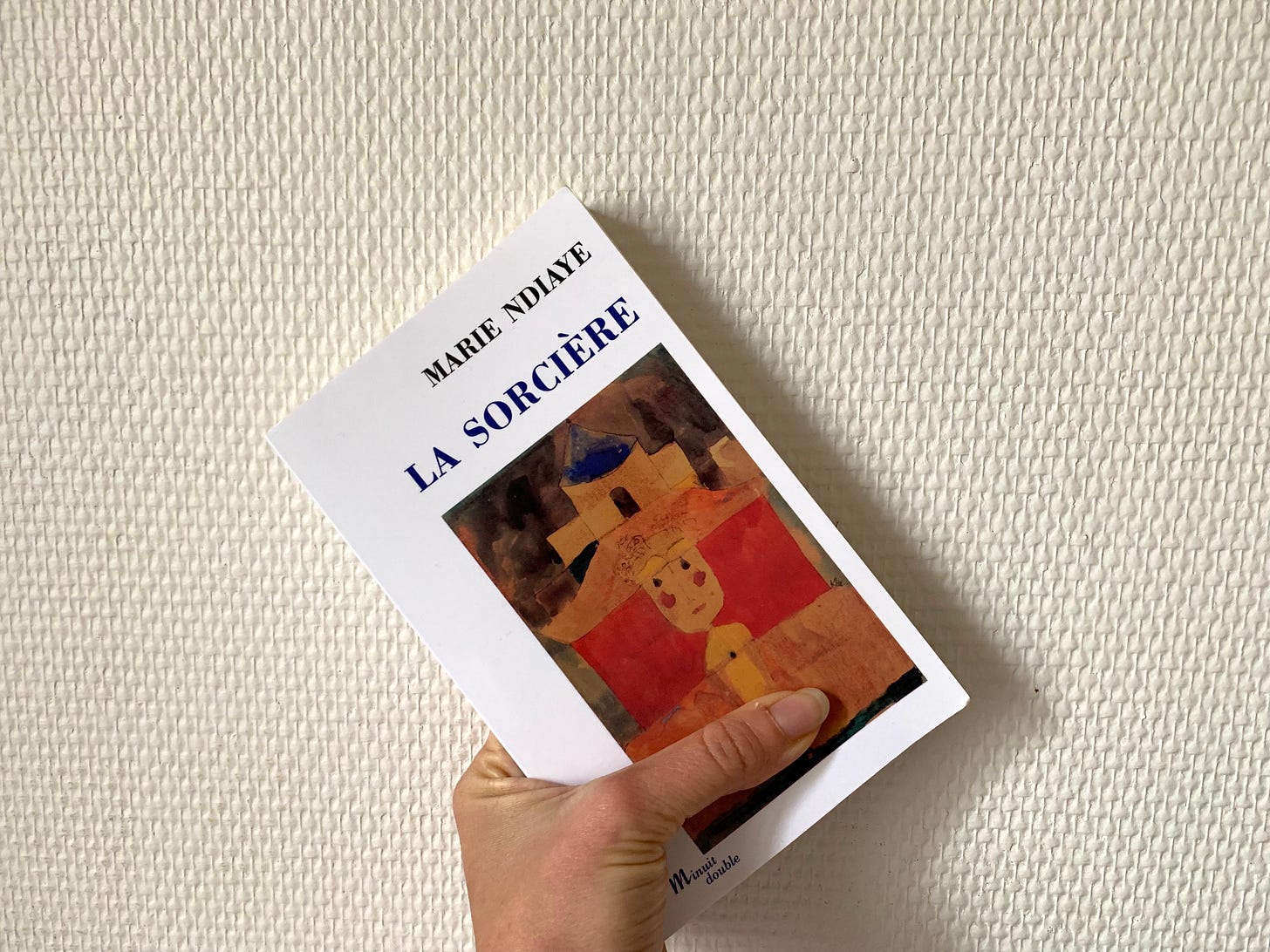This summer, I got the chance to travel to an absolute dream of a library – one where you can sleep just next door to thousands upon thousands of books.
It was the first stop on a foray through Wales that would bring me to the Eisteddfod, a celebration of Welsh language and culture, as well as a discovery of the world of Welsh cheese. And while my takeaways following my stay are now available for your perusal on the BBC, as is often the case with such stories, only a fraction of my lived experience actually saw its way to publication.
I hope, nevertheless, that most of the magic of this incredible place came through: the way in which I immediately felt, upon my arrival, that I’d come home, that I could easily return year after year after year. I loved Gladstone’s, at first, for the immersion in work and writing and learning it offered: Patronized chiefly by academics, it’s home at any given time to people who want to cultivate the same attention to their work as I do. I spent much of my time there writing in the reading rooms, soaking up not just the silence but the sheer industry that seemed to make the reading rooms pulse with quiet energy.
But over the course of my time there, a shift occurred. I realized that Gladstone’s is also an incredible place for immersing oneself, not in work, exactly, but in an atmosphere conducive to cultivating that which is so very human about creation.
Gladstone’s, as I explore in the piece, was founded as a religious institution, and today, it bears some of the hallmarks of its former overt connection to the Church in its requirement that the warden always be an Anglican priest, as well as in religious services held every morning in the chapel. Last-minute, despite having been raised Catholic, I decided to join this service, where, among other things (Martha being told, essentially, not to fuss over earthly worries, but rather to emulate Mary, or, at the very least, let her be in prioritizing that human-God interaction), Warden Andrea Russell read Pablo Neruda’s poem “Keeping Quiet.”
And I quote:
“If we were not so single-minded
About keeping our lives moving,
And for once could do nothing,
Perhaps a huge silence
Might interrupt this sadness
Of never understanding ourselves
And of threatening ourselves with death.
Perhaps the earth can teach us
As when everything seems dead
And later proves to be alive."
Cheese of the Week
Let's stay in the UK with this week's cheese: Risely is a washed-rind ewe's milk cheese made in Berkshire by Andy and Anne Wigmore. The salty, tacky rind is bold with almost bacony aromas, which the rich, creamy paste balances beautifully.
To discover more of my favorite cheeses, be sure to follow me on Instagram @emily_in_france, subscribe to my YouTube channel, and tune into the Terroir Podcast, where Caroline Conner and I delve into France's cheese, wine, and more one region at a time.
What I’m Eating
The menu at Bistrot de Paris is rife with old favorites, with appetizers like organic egg-mayo, French onion soup, escargots, leek vinaigrette, or smoked and marinated herring to be served out of a massive terrine brought to the table. I was leaning towards the latter (and not in the least because ever since reading about it in Hemingway’s A Moveable Feast, I’ve craved it every time I see it on a menu), but I couldn’t help but order this majestic pile of céleri remoulade instead. More on the blog.
Where I’m Going
1. To Au Pied de Cochon, to dig into the original gratinée des Halles (perfect for this rainy weather) and potentially some namesake pigs’ feet.
2. To the Red Wheelbarrow, to interview the founder, Penelope Fletcher, about her beloved Anglophone bookshop.
3. To the Péniche Marcounet for a bit of folk music by the Seine.
What I’m Doing
1. Signups for the next edition of the Nantes Writers’ Workshop are open! In the meantime, be sure to sign up for our newsletter to keep those creative juices a-flowing.
2. As for TERRE/MER, the cuisine-and-ceramics retreat I run with ceramicist Camille Drozdz, we’re eager to begin planning our next edition – and we need your help! If you’d like to join us, let us know your preferred dates with this quick poll.
What I'm Writing
1. For more than 100 years, clergy, scholars and ordinary people have spent their days studying and their nights sleeping in this unique institution. For the BBC.
2. Thirteen Bay Area chefs share what the pros eat when they're home for the holidays. For InsideHook.
3. From the archives: From tiny ovens to hidden cranberries, here's how to survive Thanksgiving in Paris. For Serious Eats.
What I'm Reading
1. I recently read a profile in the New York Times whose DEK dubbed Marie NDiaye "one of France’s best-known novelists.” I was ashamed to admit that despite studying French literature and living in France for over a decade, NDiaye had somehow eluded me, so I immediately headed off to the bookstore to remedy this, plucking two of the extremely prolific writer's livres de poche at random (or almost). The first, La Sorcière, seemed perfect for the period leading up to Halloween, but of course the book is anything but a seasonal fantasy. Blurring realism and magic in a wholly novel way, this book explores landmarks in the lives of women and the expectations we have of ourselves and those around us, all reflecting the period in which it is both written and set: on the cusp of the new millennium. Ndiaye expects her readers to do a lot of the work as they read, and this indeed is part of the pleasure of reading her. I look forward to coming back to this one with a pen – and to delving into even more of the work of this writer who has embarrassingly eluded me thus far.
2. This exploration of the potential effects of climate change on French cheese and terroir. In the New York Times.
3. This exploration of why writers write (despite often hating it.) In the Paris Review.
A bientôt !



